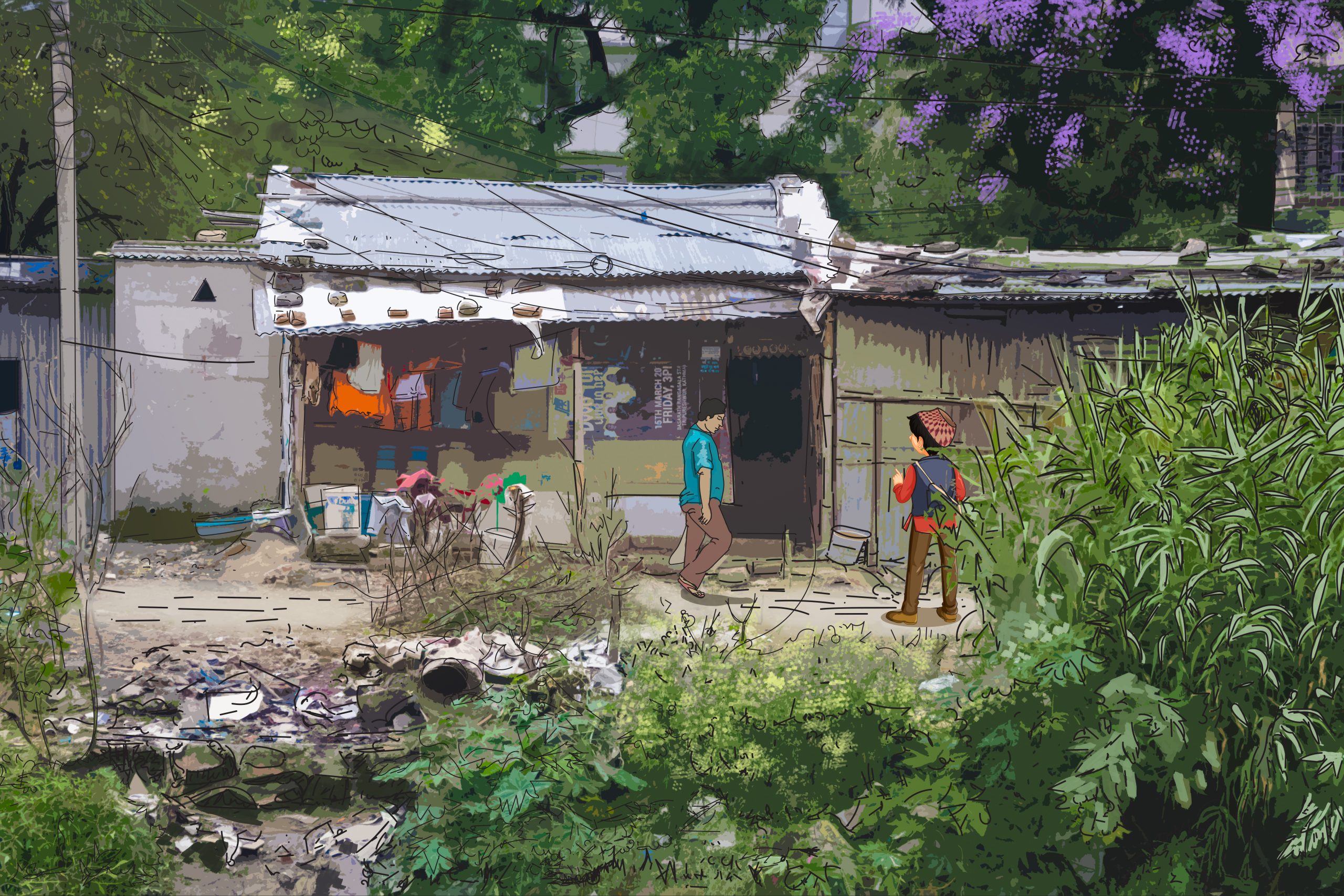Innovation Fund is the scheme provisioned by CHORUS Research Project Consortium. The fund is targeted to early and mid-career researchers from across CHORUS partners to be used for small scale for the innovative projects. These projects aim at extending knowledge in relation to CHORUS 4 pillars, explore pillars/features in relation to groups of urban poor residents facing exclusion and discrimination, support early- and mid-career LMIC researchers to develop research and leadership skills, particularly encouraging leadership from female LMIC researchers, build and extend CHORUS’s links with emerging/new urban health organisations/stakeholders e.g. research, community organisations, local governments, health providers; and to support innovative ideas for research uptake and capacity strengthening interventions and their evaluation. The innovation fund was announced in two rounds in the past years. HERD International’s early and mid career researchers four projects have been awarded from CHORUS innovation Fund. These projects are in the early stage of the implementation. The overview of the Innovation fund projects being implemented by HERD international are as follows.
1. Pathways to Effective coverage for mental health services among urban adolescent
This study focused on developing local-based solutions to improve the coverage, utilization and adherence to mental health services in Pokhara Metropolitan City (PMC) in Nepal, prioritizing the urban poor population. The study aims to improve mental health by developing a pathway that can be supportive to increase accessibility and availability of mental health services specifically tailored for adolescents in PMC. The research employs a mixed-methods approach, combining qualitative and quantitative methods, to provide a comprehensive understanding of the factors influencing the uptake and impact of mental health interventions in this specific population. Quantitative Data Collection includes the survey questionnaires administered among adolescents to assess knowledge, attitudes, and perceptions regarding mental health, as well as the utilization and effectiveness of existing interventions. Moreover, we use mental health screening tools to assess the prevalence of depression. Among the students who are depressed, will be delivered basic services (e.g., behavioral activation therapy, counselling, referral). We assess the feasibility of introducing the intervention. Interviews are be conducted among parents/guardians, mental health professionals, teachers, community leaders, and municipal authorities to explore their perspectives, experiences, and barriers to accessing and utilizing mental health interventions. The study develops a policy brief including policy recommendations targeting local stakeholders and a journal article targeting researchers to improve the coverage and effectiveness of mental health interventions among adolescents.
2. Ethnographic Study of Intersecting Inequities of Urban Poor in Kathmandu, Nepal
The study aims to identify challenges and opportunities in ensuring equitable access to quality health services among urban poor. To achieve this, the study aims to understand the characteristics of urban poor and its linkages with pathways to care seeking and how gender and other social variables interacts and creates inequities in terms of access to health services. In addition, the study looks at the health policies to understand if the context of urban poor and the concept of equity and justice has been incorporated. Further the study identifies the potential areas for intervention to address the urban health issues. The research is primarily ethnographic study in a selected urban poor settlement of Kathmandu district identified from initial listing and consultation with stakeholders. In addition policy review is conducted with an aim to synthesize the existing understanding and evidence on intersecting inequities of urban poor. The study focuses on intersectionality as a theoretical framework and analytical approach.
3. Media’s role in informing urban health policy: A cross country study of Bangladesh and Nepal
Addressing inequity and disparities in health services requires evidence-based policy decisions to tackle emerging urban health challenges, especially those affecting the poor. Since mass media play a vital role in framing public issues and setting agendas, providing perspectives and influencing audience opinions, they are influencing stakeholders to help shape urban health policies. However, the questions such as how information are gathered by news media, what type of information are used by policy makers to address the urban health challenges are largely unknown. In this context, this study identifies sources and types of evidence used by health journalists in news media, explore the perceptions and experience of journalists translating research evidence related to public/urban health issues to inform policy-makers and to explore the perceptions and experience of health policy-makers taking up research evidence through various news media and reflecting on policies in Bangladesh and Nepal. A mixed-methods approach is employed in this study. Initially, a quantitative online survey among the health journalists in news media is conducted to identify the sources of information, type of information and urban health topics which get prioritized in reporting and barriers and challenges of conveying knowledge to the policy makers. Similarly, the qualitative component comprises In-depth interviews and Key-informant interviews with urban/health journalists and reporters and editors. Additionally, stakeholders involved in policymaking, including but not limited to, government officials are engaged in this study for Key Informant and In-depth Interviews. The findings will be synthesised by integrating qualitative and quantitative data. Ultimately, the research output will be disseminated through peer-reviewed articles, project reports, policy brief, and video blog on cross-country experience on future media engagement based on evidence to promote CHORUS research uptake.
4. Assessing Urban Poverty and Deprivation in Nepal
This study measures the urban deprivation indices, involving a review of urban deprivation indicators, evaluation of data sources for urban deprivation measurement, identification of gaps in available data, development of an Urban Deprivation Index, and collaboration with municipalities for enhance use of data and visualization, and capacity building. The research will commence with rapid review to identify and synthesize existing urban poverty measurement frameworks and urban poverty studies, particularly focusing on quantitative measurements of deprivation through established indices. This will involve examining existing datasets and identifying any gaps or limitations in the data that could impact the construction of urban poverty indices. The identification of optimal indices will be informed by comparative analyses and expert consultations. The selected indices will be used to construct feasible and effective urban deprivation indices, which will provide granular data at provincial, district and local level. This will enable policymakers and stakeholders to explore urban poverty trends visually and access key insights for informed decision-making and resource allocation.
Associated Team Members
Shreeman Sharma
Research Uptake ManagerShreeman Sharma is a dedicated professional with a strong interest in media research, health research, health communication, and evidence uptake. He holds Master’s degrees’ in Development Management from the Asian Institute of Management and Mass Communication and Journalism from Purbanchal University. He is currently serving as a Research Uptake Manager at HERD International. Since assuming his current position in October 2020, Shreeman has taken on the role of Research Uptake Global lead for the Community-led Responsive and Effective Urban Health [...]
Learn moreAbriti Arjyal
Research Manager - Qualitative and Multidisciplinary ScienceAbriti Arjyal
Research Manager - Qualitative and Multidisciplinary ScienceAbriti Arjyal has more than a decade of experience in the health system and social research, with specific expertise in implementation science and applied research. As a Research Manager in Qualitative and Multidisciplinary Science, she has led and contributed to several research projects as a co-investigator, thematic lead, or a member of the research team. and has established a network with national and international research experts. She has wide-ranging experience in the application of numerous research methods, including qualitative tools [...]
Learn moreSampurna Kakchapati
Research Manager: Survey, Evaluation and ImpactDr. Sampurna Kakchapati is an experienced public health professional and researcher with a PhD in Research Methodology. He brings over 15 years of extensive expertise in data science, statistics, quantitative research, and monitoring and evaluation. Recognized as a leading expert in the field, Dr. Kakchapati has demonstrated his proficiency by successfully conducting and overseeing various national and international research projects and surveys. Dr. Kakchapati holds proficiency in data analysis using statistical packages such as R program and SPSS. His professional [...]
Learn moreGrishu Shrestha
Research OfficerGrishu Shrestha is a public health professional with background in nursing. With a foundation in PCL Nursing and a Masters degree in Public Health, Grishu brings both theoretical knowledge and practical skills to her work. Her journey began in direct patient care as a nurse, giving her firsthand experience in understanding the needs and challenges faced by individuals within the healthcare system. Prior to this, she had worked as a field coordinator for a randomized controlled trial (RCT) study related [...]
Learn moreParash Mani Sapkota
Research OfficerMr. Parash Mani Sapkota is a public health graduate from Tribhuvan University who is passionate about excelling in the field of public health. Mr. Sapkota embarked on his professional journey as an intern at HERD International, progressing to a full time role where he has accumulated two years of valuable experience as a researcher. Mr. Sapkota’s expertise lies in data management and analysis. As a young professional, he finds himself captivated by the world of health informatics and data science, [...]
Learn moreSulata Karki
Senior Research OfficerSulata Karki is a public health professional with a wealth of experience spanning over seven years. Holding a Master’ Degree in Public Health, she has made significant contributions to various healthcare organizations actively participating in public health programs and research projects. Ms. Karki’s comprehensive expertise extends across diverse areas, including maternal and child health, digital health, mental health, and eye health. As a proficient mixed-method researcher, Ms. Karki has been actively engaged in implementation science, specifically in an evaluation study [...]
Learn moreSitashma Mainali
Research AssistantMs. Sitashma Mainali is a public health professional with a bachelor’s degree in Public Health from Pokhara University. She began her professional career as an intern at Karuna Foundation Nepal, where she immersed herself in various facets of health programming, gaining invaluable experience in program design and implementation. Her exposure to M&E practices equipped her with the skills to assess program effectiveness and make data-driven decisions to optimize outcomes. She has also developed proficiency in research methodologies, conducting literature reviews, [...]
Learn moreSushil Chandra Baral
Managing DirectorDr. Sushil Chandra Baral is an experienced health and development expert with over 25 years of experience in research and development. Specializing in health systems, health policy, and planning at both national and international levels, Dr. Baral has played a pivotal role in communicable disease control, specifically Tuberculosis. He serves as a Managing Director at HERD International. In the past, he worked as a Strategic Advisor for the Nepal Health Sector Support Programme demonstrating expertise in program-based operational research and [...]
Learn moreProject Location
Similar Projects
A short term project to monitor the activities of UNICEF interventions in the earthquake-affected districts to help UNICEF perform ...
HERD in partnership with IMC Worldwide and University of Portsmouth (UoP) in UK and the International Centre for Research on Women ...
Healthcare accessibility is increasing worldwide as nations strive for Universal Health Coverage (UHC). However, access alone does not ...
Background UNICEF’s Acute Respiratory Infection Diagnostic Aid (ARIDA) project was initiated as a response to the call for better ...
Introduction The KfW Development Bank has supported the cooperation framework between Nepal and Germany for over 20 years. This ...
Shifting tasks to mid-level health workers has been recommended as an effective strategy to provide care in rural and remote areas ...
Introduction This is a multi-country and multi-method study that aims to test the feasibility, cost and appropriateness of three novel ...
This formative research explores knowledge, access and use of fertility and Family Planning (FP) services among married men and women ...
Background The growing numbers of urban poor around the world face several health challenges including the double burden of ...
Central Bureau of Statistics (CBS), on behalf of Ministry of Federal Affairs and Local Development (MoFALD) and Ministry of Urban ...













